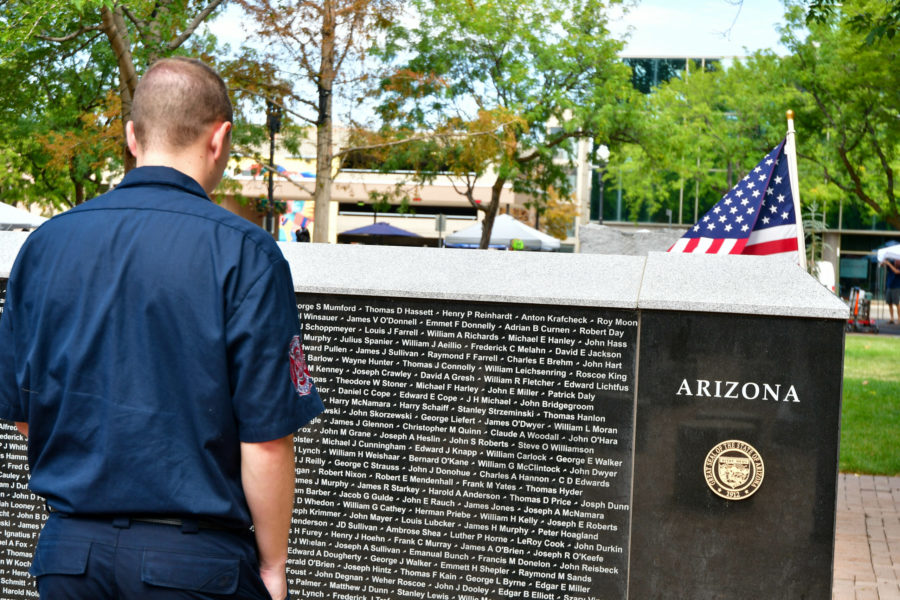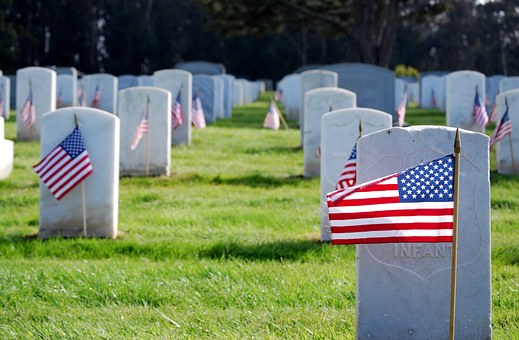Weber State University’s Army ROTC department aims to teach students to be leaders in the United States military.
According to the WSU recruiting operations officer, Nathanial Walton, the ROTC’s mission has had the same core for the past 100 years.
“Our department’s mission is no different than it was for your great-grandfather back during World War I,” Walton said, “and that’s to take college graduates and give them the necessary leadership skills to become officers in the United States Army.”
The program is divided into four levels of training for ROTC cadets: MS1, MS2, MS3 and MS4.
“Each year essentially builds on the last,” Walton said. “The skills you learn as an MS1 you’re going to continue to do as an MS2, as an MS3 and as an MS4. The difference between each year is the growing responsibility in the leadership that’s going to be required of you.”
Starting at the MS3 level, which, according to Walton, is the cadets’ most crucial year, and continuing into the MS4 level is when the students begin to take responsibilities as leaders.
“The MS3 year is the most crucial year for Army cadets, as it is our evaluation year that prepares us for Learning Development and Assessment Course, which is similar to basic training for officers and is attended between our junior and senior years,” said WSU ROTC cadet Joshua Hunt, who is about to enter his MS3 year. “We face a greater level of responsibility, a higher workload and new challenges. This is the year that defines you as a leader and future officer.”
ROTC is designed to help cadets learn more about the army and how to function as team members. The program requires physical fitness and agility. Cadets must be able to pass a physical training test once a month and during training carry rucksacks that weigh 35 pounds on average for several hours.
“Being able to pass your PT test is a must,” said ROTC cadet Rodney Bailey, who is entering his MS4 year, “because we stress that if you as a future leader are supposed to tell your soldiers to pass their PT test and if you’re not leading from the front, if you’re not passing your PT test, your soldiers look down on you.”
The program is also mentally demanding and requires cadets to think quickly and come to good decisions on what they want to do. Part of the challenge of being an MS3 is the higher level of evaluation that is not given to MS1 or MS2 cadets.
“It was a lot harder as an MS3,” Bailey said. “There was a lot more to do and a lot more stress, because if something didn’t happen and if something didn’t get done, it was on you; it was your fault.”
The expectation for the MS4 level is that cadets start acting as supervisors and leaders for the ROTC program. It also involves learning how to be lieutenants in the army and helping lower levels of cadets prepare for their Learning Development and Assessment Course.
While aiming to prepare students for careers in the Army, the WSU ROTC reaches out to students in a variety of majors, including math, science and engineering, and provides different careers within the Army that apply to students of many different interests. The department offers much assistance to cadets going into a career in nursing, as an example.
“Army ROTC has already taken me great places,” Hunt said. “Just this summer I was awarded an Army CULP (Cultural Understanding and Language Proficiency) scholarship to the University of Utah for their summer foreign language institute, where I participated in an accelerated Russian program. Many other opportunities are available as a cadet, such as airborne school, air assault and many others. And, of course, the ultimate goal: a commission as a second lieutenant upon graduation, followed by branching into one of many career fields.”
More information about ROTC programs in general can be found at www.goarmy.com/rotc.














